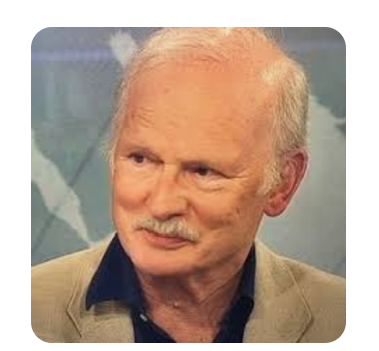Donald Trump’s reelection has been met with mixed feelings but not in Turkey. President Erdogan has expressed his belief that ties between Turkey and the United States would improve under the “model partnership” that would emerge.
Erdogan pins his hopes on Trump’s promise to end conflicts, and he has in mind Israel’s offensives in Gaza and Lebanon as well as the war in Ukraine. There is also one particular issue Erdogan has in mind, where he expects Trump to give ground.
It was the U.S.-led invasion of Iraq in 2003 that destablized the Middle East and its de-Baathification law which led to the disbandment of the Iraqi army. This, in turn, led to the leading role played by Baathist officers in the formation of the Islamic State (ISIS), originally an al-Qaeda affiliate.
A bizarre twist was the circulation of a memo by the U.S. Defense Intelligence Agency in August 2012, stating that Western countries, the Gulf states and Turkey all supported the possibility of establishing a Salafist principality in eastern Syria to isolate the Syrian regime.
Consequently, as Vice President Joe Biden revealed in a Q&A session at Harvard in October 2014, “Our allies in the region [Turkey, the UAE, Saudi Arabia and Qatar] were our largest problem in Syria. They were so determined to take down Assad, and essentially have a proxy Sunni-Shia war, what did they do?
They poured hundreds of millions of dollars and tens of tons of weapons into anyone who would fight against Assad – except that the people who were being supplied were al-Nusra and al-Qaeda, and the extremist elements of jihadis who were coming from other parts of the world.”
The USA itself poured $500 million into a train-and-equip programme for the moderate opposition to Assad. The first group of 54 fighters to graduate were wiped out by al-Nusra in July 2015. A second group in September surrendered their pick-up trucks and equipment, so the venture was abandoned.
Instead, the United States shifted focus, and in September 2014 became the driving force behind the global coalition, Operation Inherent Resolve, to defeat ISIS. In cooperation with the Kurdish peshmerga fighters and the Iraqi army, ISIS was driven from Mosul, its Iraqi capital. In October 2017, with the support of U.S. special forces and air support, the Kurdish-led Syrian Democratic Forces (SDF) captured ISIS’s Syrian stronghold in Raqqa.
This was the most successful and cost-effective U.S. operation in Syria, only to be undermined by President Donald Trump’s decision to withdraw U.S. troops and allow Turkey to launch a military operation against the SDF in October 2019.
Despite widespread criticism, Trump has defended his decision as “strategically brilliant”. Following his call with Erdogan, Trump entrenched his position in a tweet, where he stated, “if Turkey does anything that I, in my great and unmatched wisdom, consider to be off limits, I will totally destroy and obliterate the economy of Turkey (I’ve done before!).”
Nevertheless, Turkey’s President Erdogan calculates that he once again will be able to talk Trump into supporting his plan to terminate continued U.S. support for the SDF.
At the same time, Erdogan’s plans for constitutional reform are dependent on support from 360 seats (out of the Turkish parliament’s 600) but the governing AKP (Justice and Development Party) and its allies command only 321.
Overtures have been made to the pro-Kurdish DEM (Peoples’ Equality and Democracy Party) with 57 seats but support is unlikely since the government has removed three legally elected DEM mayors and now two more.
Following the attack on a Turkish aerospace company, for which the PKK (Kurdistan Workers’ Party) claimed responsibility, airstrikes have been launched against Kurdish targets in northern Iraq and northern Syria. Erdogan also expects Trump to greenlight a new offensive against Kurdish forces in northern Syria.
However, Trump’s nomination of Marco Rubio as secretary of state and Mike Waltz as national security adviser, both known for their critical stance towards Turkey, could put a spoke in Erdogan’s wheel.
In Febuary 2021 Marco Rubio together with Democratic senator Ron Ryden co-authored a bipartisan letter signed by 52 other senators to President Biden, condemning the human rights abuses that have taken place in Turkey under President Erdogan. They also criticized his belligerent foreign policy, including the attack on U.S.-backed Kurds fighting ISIS in Syria.
Mike Waltz, a former Special Forces officer, regarded U.S. withdrawal from Syria “a strategic mistake” and in October 2019 co-sponsored together with Republican Liz Cheney and over 90 Republican colleagues a bill to impose sanctions on Turkey because of their offensive against U.S.-allied Kurdish forces in northern Syria. Waltz also introduced bipartisan legislation to extend special visas to Syrian Kurdish fighters.
The United States has also warned Turkey against hosting Hamas leaders after Qatar ended its mediation efforts and asked them to leave.
The Trump administration may not be the walkover Erdogan expects.
Robert Ellis is a Turkey analyst and commentator. He is also an international advisor at RIEAS (Research Institute for European and American Studies) in Athens.
Reprinted with the author’ permission
Follow our English language YouTube videos @ REAL TURKEY: https://www.youtube.com/channel/UCKpFJB4GFiNkhmpVZQ_d9Rg
And content at Twitter: @AtillaEng
Facebook: Real Turkey Channel: https://www.facebook.com/realturkeychannel/
